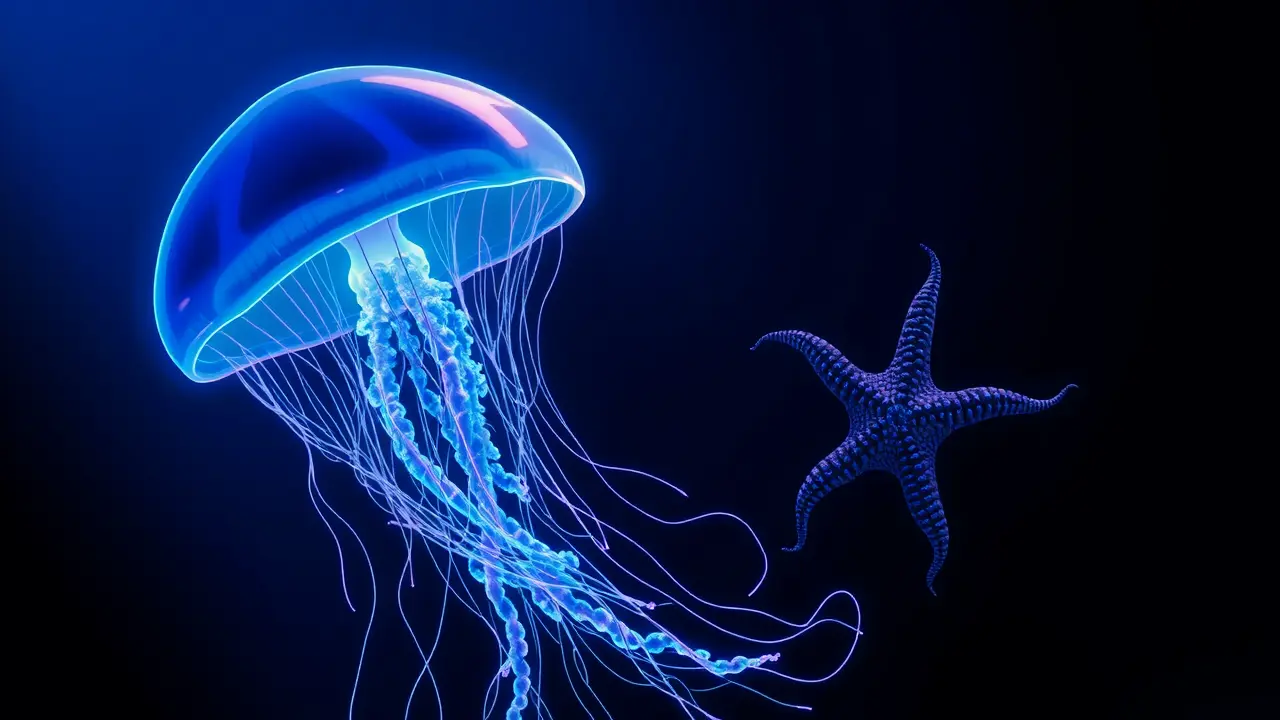
Scienceneuroscience
Can Brainless Animals Like Jellyfish Actually Think?
RA
Rachel Adams
7 hours ago7 min read1 comments
The question of whether brainless animals can think isn't merely a philosophical curiosity; it's a fundamental challenge to our anthropocentric understanding of consciousness itself. Consider the humble jellyfish, a creature whose evolutionary lineage diverged from our own over 600 million years ago.Devoid of a central brain, a true heart, or even blood, it navigates the marine world with a rudimentary nervous system known as a nerve net. This decentralized network allows it to detect changes in its environment, such as the subtle chemical signature of prey or the physical disturbance of a potential threat, and execute a coordinated response—the infamous sting.This isn't a reflexive jerk, like a human knee-jerk reaction, but a complex behavior involving the firing of specialized stinging cells called cnidocytes. Scientists probing this phenomenon are exploring concepts like embodied cognition, where the body's structure and its interaction with the environment play a primary role in generating intelligent behavior.The jellyfish’s entire body, in essence, acts as a distributed processor. Similarly, the sea star, or starfish, operates through a radical anatomical design.Its nervous system is spread throughout its arms, connected by a central nerve ring. Research has shown that a sea star can coordinate its hundreds of tube feet to crawl purposefully toward a mussel, and if one arm detects a predator like an octopus, that information is relayed to the others, prompting a unified escape maneuver.This raises profound questions: where does instinct end and cognition begin? Can learning occur without a brain? Studies on sea anemones, cousins to jellyfish, have demonstrated habituation—they can learn to ignore harmless, repeated stimuli, a simple form of memory. This suggests that the building blocks of thought, such as processing information, making decisions based on sensory input, and learning from experience, may be far more ancient and widespread in the animal kingdom than previously imagined, rooted not in a single command center but in the very architecture of life.The implications ripple outward, forcing us to reconsider our ethical frameworks. If a creature can learn and make decisions, however primitively, does it possess a form of sentience worthy of moral consideration? This exploration at the frontiers of neurobiology and ecology doesn't just reveal the hidden capabilities of invertebrates; it forces a humbling re-evaluation of what it means to think, blurring the hard line we've drawn between ourselves and the rest of the animate world.
#featured
#brainless animals
#cognition
#decision-making
#jellyfish
#sea star
#neuroscience
#animal behavior
Stay Informed. Act Smarter.
Get weekly highlights, major headlines, and expert insights — then put your knowledge to work in our live prediction markets.
Related News
© 2025 Outpoll Service LTD. All rights reserved.
